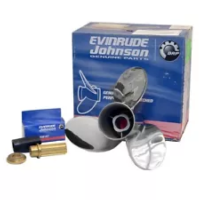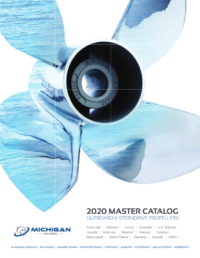I fondly remember growing up in the 1960's and 1970's spending summers fishing with my grandfather in southern Indiana. My Grandfather who was a Kentucky coal miner and eventually retired from Chrysler Motor Corporation as a factory worker was viewed by many as mechanically talented. He was also the best fly-fisherman I have ever met. My Grandfather enjoyed his retirement tying flies and maintaining his fishing equipment, including his boat motor in the winter and fishing on most days during the summer. He was also very much an enviromentalist as you can see in a letter I recently discovered. My grandfather repaired small engines in his single car garage during the summer. People came from all around to get their lawnmowers fixed. I think he did this mostly out of love of tinkering because he certainly did not charge much money for his labor. I remember helping him during the morning and early afternoon working on lawnmowers, cutting grass, tending the garden, or whatever else needed to be done so that he could be free to go fishing in the afternoon. Upon retirement, my grandfather bought a 16-foot aluminum johnboat and a brand new Evinrude 3 hp Lightwin motor which was perfect to take to the stripper pits and go fly fishing along the banks. My earliest memories of boats and motors are from these days. I was always amazed how easy his motors were to start and how well they ran. He also had a Lawn Boy push mower that started every time on the first pull and was the best mower I ever used. I now realize that his Evinrude boat motor and Lawn Boy mower motor were both made by the same Outboard Marine Corporation and were both two cycle motors with many interchangeable parts.
My grandfather was a talented man. He was not a wealthy man, but he got along well and with his talents and accomplished many things. He built several small fishing boats out of wood. He was a skilled carpenter and built several houses. He even designed and made a popup camper long before anyone ever heard of such a thing. He tied his cork popper flies and kept us all supplied for fishing. He had a great appreciation for the inventions that made his life better. He marveled at his Colman lantern and stove he used for camping. He had a Silvertrol electric trolling motor that was exceptionally quiet for fishing along the banks. His new aluminum boat was light enough for one man to handle loading and unloading from the racks on top of his fishing car. And he was proud of his Ocean City #90 automatic fly reel because he spent most of his time casting a fly rod with one hand and running a trolling motor with the other. He felt that Mr. Coleman made a good cooler that kept our drinks cold on a hot summer day, and Mr. Evinrude made a wonderful 3-hp Lightwin boat motor that was easy to carry and mount on his boat.
Now that I am in my 50's, I am appreciating the good days I had growing up. I still spend time carrying on the tradition of fly fishing with my father and my children. The equipment we have today is newer, more advanced, bigger, and most of all expensive. I've been fortunate enough to have and do things that my grandfather could never afford, but somehow something is missing. I take my daughters and son fishing, and like any kids that have the opportunity, they all love to drive the boat. Somehow they are not getting the same experience with the high power, high tech, four stroke engine that I have on my fishing boat today. My son and I were in Boy Scouts together, and I a counselor for the Environmental Science Merit Badge. One of the lakes that I want to take the scouts to has a 10-hp limit so I found myself in need of a small motor. A friend of mine realizing what I wanted to do with the scouts gave me a couple of small motors that he said he was too old to pull the rope to get them started. These motors were a 1963 Evinrude 3 HP Lightwin which I immediately fell in love with because it was just like I remember my grandfather having, and a 1958 Johnson 5.5 HP Seahorse. I knew that these were classic motors. These motors along with a seized up 1996 Johnson 15 hp that I have sitting around, given up as too expensive to have repaired, gave me the challenge I needed for a good winter tune up project.
My Grandfather always told me, and I remember it well, that "When it comes to motors if everything is assembled and adjusted correctly then it will run well." "If it does not start or run well, then there is a problem that you have to find and fix or tune up." This is one of the many truths in life that he taught me. Spark, fuel, and compression are the three main things that are required to make a motor run.
My hope is to document the tune up of these motors by posting pictures and explanations on this website in such a way that it can be a resource for anyone with a similar motor that needs a minor repair or tune up. I will list the specific parts and their catalog numbers that I use and tell you exactly what you need. I hope to do these tune up projects with only simple tools and repair manual. You may have one of these old Evinrude or Johnson outboard motors around that you inherited or acquired. It may or may not run but chances are it can be made to run well with a complete tune up. You can get pretty much any part you need for an old motor through e-Bay or on the Internet in general. We have links where you can buy many of the parts on Amazon.com. By using Amazon, we get a small commission which helps to fund this site and future projects. If you have an old outboard, you need to tune it up before you put it on a lake and expect it to fire up and run. Without a good tune-up, you could ruin a good outing and find yourself disappointed. It only takes about $100 in parts and some dedicated labor to make a small outboard boat motor run as well as it did when it was new. I learned that some of the parts on these motors would need to be replaced, even if the motor was stored properly but for a long time. Some of the replacement parts are far superior to the original parts so replacing them will help your motor. My desire is not to restore these motors to the point that they are show pieces, but rather to end up with something that I can enjoy using for many years. There are people around who fix up old boat motors to the point where they are show pieces and then offer them for sale.
It would cost a fortune to get these motors fixed at a boat dealer service shop. I've been told by a couple of places that the older motors are not worth fixing and they were more interested in selling me a new motor. Other places will tell you that they do not work on motors that are more than 10 or 20 years old. In reality, these motors are easy to tune up and anyone with the time, patience, and minimal mechanical ability can get one tuned up and running well with relatively little expense. Once you complete one of these projects and you fire it up for the first time, you will have a great deal of satisfaction knowing that you made your old Evinrude or Johnson boat motor run well.
Please CLICK HERE to read about what you need before you start your project.





